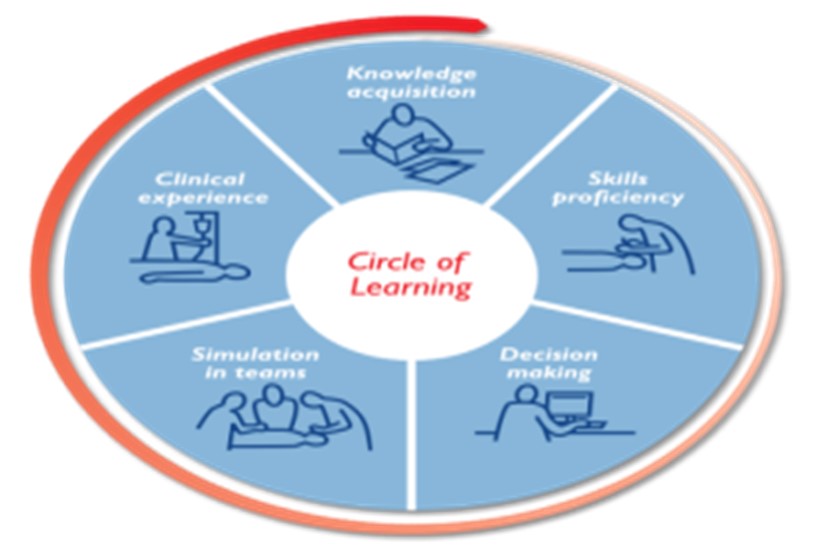The Circle of Learning is a framework that identifies stages of learning in healthcare education and illustrates the process of going from theoretical knowledge to clinical practice. It consists of five steps:
- Knowledge acquisition is the process of acquiring knowledge through textbooks, charts, anatomical models etc.
- Skills proficiency is the process of developing psychomotor skills through repetitive practice to master practical procedures typically using task trainers and simulators. Here, checklists and skills labs play an important role. Checklists ensure objective and standardized learning of skills.

- Critical thinking/ decision making is using problem-based learning/ computer programs/ case studies that provide intelligent feedback to develop critical thinking and decision-making skills.
- Simulation in teams -allows a group of students to practice and role play realistic scenarios to improve technical- critical thinking, physical skills and clinical decision-making skills and non-technical skills like communication, time-management during clinical care, leadership and teamwork. Students can apply their previous knowledge and skills attained in a classroom to real world situations which require making decisions that in many cases well before they experience it in their clinical experiences. A wide variety of clinical conditions can be simulated in controlled environments to produce standardized experiences. This is particularly significant for training to manage emergency situations.
- Clinical experience and practice is learning through reflecting on the management of real patients, personal tuition, and exchange of knowledge with colleagues